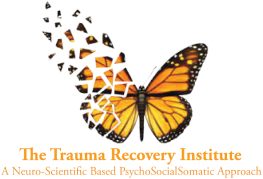19 Oct The Key to Happiness Revealed by Harvard Study
Essential, data-derived advice for leading a happy, healthy life, shared by researcher and psychiatrist Robert Waldinger.
Have you ever wished you could fast-forward your life so you could see if the decisions you’re making will lead to satisfaction and health in the future? In the world of scientific research, the closest you can get to that is by looking at the Harvard Study of Adult Development — a study that has tracked the lives of 724 men for 78 years, and one of the longest studies of adult life ever done. Investigators surveyed the group every two years about their physical and mental health, their professional lives, their friendships, their marriages — and also subjected them to periodic in-person interviews, medical exams, blood tests and brain scans.
With a front-row seat on these men’s lives, researchers have been able to track their circumstances and choices and see how the effects ripple through their lives. Psychiatrist Robert J. Waldinger, the study’s director and principal investigator, shared some of the major lessons in a popular TED Talk (What makes a good life? Lessons from the longest study on happiness). The big takeaways from that talk: Good relationships keep us happier and healthier, and loneliness kills. But there were, of course, many more lessons to be learned — the study has yielded more than 100 published papers so far, with enough data for “scores more” — and Waldinger shares four of them here.
1. A happy childhood has very, very long-lasting effects.
Having warm relationships with parents in childhood was a good predictor you’ll have warmer and more secure relationships with those closest to you when you’re an adult. Happy childhoods had the power to extend across decades to predict more secure relationships that people had with their spouses in their 80s, as well as better physical health in adulthood all the way into old age. And it’s not just parental bonds that matter: Having a close relationship with at least one sibling in childhood predicted which people were less likely to become depressed by age 50.
2. But … people with difficult childhoods can make up for them in midlife.
People who grow up in challenging environments — with chaotic families or economic uncertainty, for instance — grew old less happily than those who had more fortunate childhoods. But by the time people reached middle age (defined as ages 50–65), those who engaged in what psychologists call “generativity,” or an interest in establishing and guiding the next generation, were happier and better adjusted than those who didn’t. And generativity is not dependent on being a parent — while people can develop it by raising children, they can also exhibit it at work or other situations where they mentor younger adults.
3. Learning how to cope well with stress has a lifelong payoff.
We’ve all developed ways of managing stress and relieving anxiety, and Waldinger and his team have found that some ways can have greater long-term benefits than others. Among the adaptive coping methods they examined are sublimation (example: you feel unfairly treated by your employer, so you start an organization that helps protect workers’ rights), altruism (you struggle with addiction and help stay sober by being a sponsor for other addicts), and suppression (you’re worried about job cuts at your company but put those worries out of mind until you can do something to plan for the future). Maladaptive coping strategies include denial, acting out, or projection. The Harvard researchers found the subjects who dealt with stress by engaging in adaptive methods had better relationships with other people. And their way of coping had a cascade of beneficial effects: It made them easier for others to be with, which made people want to help them and led to more social support, and that, in turn, predicted healthier aging in their 60s and 70s. Added bonus: people who used adaptive mechanisms in middle age also had brains that stayed sharper longer.
4. Time with others protects us from the bruises of life’s ups and downs.
Waldinger has said “it’s the quality of your relationships that matters” is one significant takeaway from the study. Well, the researchers have found that quantity counts, too. Looking back on their lives, people most often reported their time spent with others as most meaningful, and the part of their lives of which they were the proudest. Spending time with other people made study subjects happier on a day-to-day basis, and in particular, time with a partner or spouse seemed to buffer them against the mood dips that come with aging’s physical pains and illnesses.
Waldinger continues to marvel at the researchers’ findings, even though he freely acknowledges how skewed their research group is — “it’s the most politically incorrect sample you could possibly have; it’s all white men!” (In fact, the group originally included John F. Kennedy.) With “only a handful” of the original subjects left to study, the Harvard team is now moving on to the men’s 1,300 children who’ve agreed to participate (a group that’s 51 percent female). But he’s painfully aware that the proposed cuts to the National Institutes of Health could end even their long-running study. “Our kind of research might be one of the first projects to go. Our work is not urgent; it’s not the cure for cancer or Alzheimer’s,” he says. “But we have a way of understanding human life that you can’t get anywhere else and it lays the foundation for important, actionable things.”
Overcoming Adverse Childhood Experiences at Trauma Recovery Institute
Nobody can “treat” a war, or abuse, rape, molestation, or any other horrendous event, for that matter; what has happened cannot be undone. But what can be dealt with are the imprints of the trauma on body, mind, and soul: the crushing sensations in your chest that you may label as anxiety or depression; the fear of losing control; always being on alert for danger or rejection; the self-loathing; the nightmares and flashbacks; the fog that keeps you from staying on task and from engaging fully in what you are doing; being unable to fully open your heart to another human being. Trauma robs you of the feeling that you are in charge of yourself. The challenge of recovery is to reestablish ownership of your body and your mind – of your self. This means feeling free to know what you know and to feel what you feel without becoming overwhelmed, enraged, ashamed, or collapsed. For most people this involves (1) finding a way to become calm and focused, (2) learning to maintain that calm in response to images, thoughts, sounds, or physical sensations that remind you of the past, (3) finding a way to be fully alive in the present and engaged with the people around you, (4) not having to keep secrets from yourself, including secrets about the ways that you have managed to survive. – Bessel Van Der Kolk
Treatment of Relational and complex Trauma at Trauma Recovery Institute
Trauma Recovery Institute offers unparalleled services and treatment approach through unique individual and group psychotherapy. We specialise in long-term relational trauma recovery, sexual trauma recovery and early childhood trauma recovery. We also offer specialized group psychotherapy for psychotherapists and psychotherapy students, People struggling with addictions and substance abuse, sexual abuse survivors and people looking to function in life at a higher level. Trauma recovery Institute offers a very safe supportive space for deep relational work with highly skilled and experienced psychotherapists accredited with Irish Group Psychotherapy Society (IGPS), which holds the highest accreditation standard in Europe. Trauma Recovery Institute uses a highly structured psychotherapeutic approach called Dynamic Psychosocialsomatic Psychotherapy (DPP).
At Trauma Recovery Institute we address three of the core Attachment Styles, their origin’s the way they reveal themselves in relationships, and methods for transforming attachment hurt into healing. We use the latest discoveries in Neuroscience which enhances our capacity for deepening intimacy. The foundation for establishing healthy relationships relies on developing secure attachment skills, thus increasing your sensitivity for contingency and relational attunement. According to Allan Schore, the regulatory function of the brain is experience-dependent and he says that, as an infant, our Mother is our whole environment. In our relational trauma recovery approach you will learn to understand how the early patterns of implicit memory – which is pre-verbal, sub-psychological, and non-conceptual – build pathways in our brain that affect our attachment styles. Clinically, we can shift such ingrained associative patterns in our established neural network by bringing in new and different “lived” experiences in the Here and Now.

The Role of the Therapist in transforming attachment trauma: Healing into wholeness takes the active participation of at least one other brain, mind, and body to repair past injuries – and that can be accomplished through a one-to-one therapeutic relationship, a therapeutic group relationship or one that is intimate and loving. In exploring the “age and stage” development of the right hemisphere and prefrontal cortex in childhood, we discover how the presence of a loving caregiver can stimulate certain hormones, which will help support our growing capacity for social engagement and pleasure in all of our relationships. Brain integration leads to connection and love throughout our entire life span. At trauma recovery institute we bring a deep focus to the role of Neuroscience in restoring the brain’s natural attunement to Secure Attachment. Our brain is a social brain – it is primed for connection, not isolation, and its innate quality of plasticity gives it the ability to re-establish, reveal and expand one’s intrinsic healthy attachment system.
Dynamic Psychosocialsomatic Psychotherapy (DPP) at Trauma Recovery Institute Dublin
Dynamic Psychosocialsomatic Psychotherapy (DPP) is a highly structured, once to twice weekly-modified psychodynamic treatment based on the psychoanalytic model of object relations. This approach is also informed by the latest in neuroscience, interpersonal neurobiology and attachment theory. As with traditional psychodynamic psychotherapy relationship takes a central role within the treatment and the exploration of internal relational dyads. Our approach differs in that also central to the treatment is the focus on the transference and countertransference, an awareness of shifting bodily states in the present moment and a focus on the client’s external relationships, emotional life and lifestyle.
Dynamic Psychosocialsomatic Psychotherapy (DPP) is an integrative treatment approach for working with complex trauma, borderline personality organization and dissociation. This treatment approach attempts to address the root causes of trauma-based presentations and fragmentation, seeking to help the client heal early experiences of abandonment, neglect, trauma, and attachment loss, that otherwise tend to play out repetitively and cyclically throughout the lifespan in relationship struggles, illness and addictions. Clients enter a highly structured treatment plan, which is created by client and therapist in the contract setting stage. The Treatment plan is contracted for a fixed period of time and at least one individual or group session weekly.

“Talk therapy alone is not enough to address deep rooted trauma that may be stuck in the body, we need also to engage the body in the therapeutic process and engage ourselves as clients and therapists to a complex interrelational therapeutic dyad, right brain to right brain, limbic system to limbic system in order to address and explore trauma that persists in our bodies as adults and influences our adult relationships, thinking and behaviour.”


Sorry, the comment form is closed at this time.